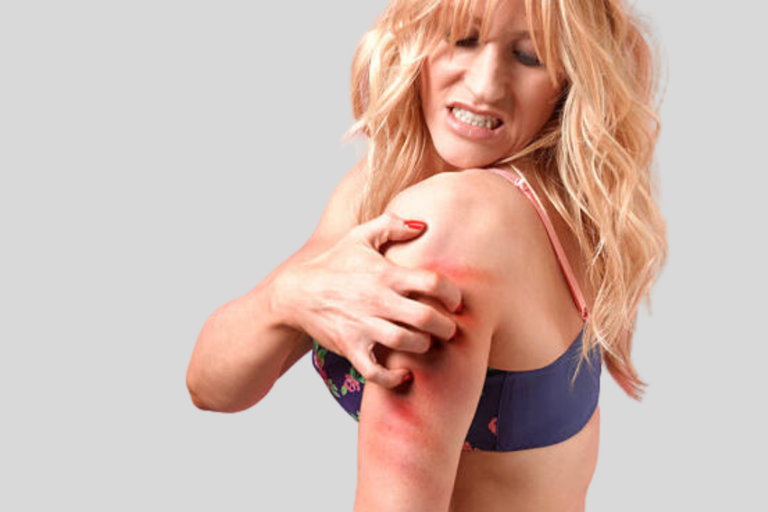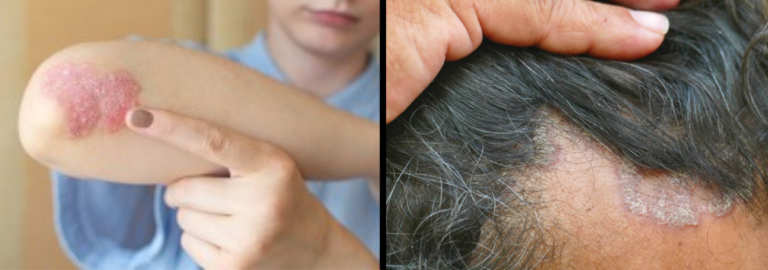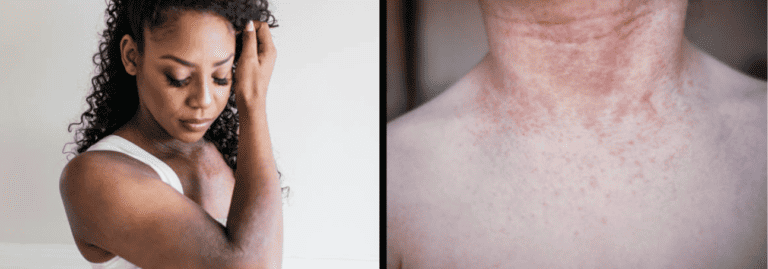Natural Chinese Medicine
for Skin Conditions

Natural Chinese Medicine for Skin Conditions
Views of Chinese Medicine Skin problems indicate an underlying imbalance in your body.
Some of the most prevalent skin conditions include acne, psoriasis, and eczema, sometimes known as atopic dermatitis, rosacea, and hives. Even though the symptoms manifest on the skin, according to Chinese Medicine, eczema always reflects an interior problem
How can Chinese Medicine treat skin Disorders?
Chinese Medicine works by re-harmonizing internal organs most directly associated with your immune system (Lung, Liver) and digestive system (stomach, spleen, large intestine, small intestine, and other organs). Chinese Medicine tries to treat skin conditions at its root. It allows you to strengthen and achieve harmony, balance, and healing of the body, mind, and spirit without using powerful drugs.
Traditional Chinese Medicine (TCM) has been used for skin conditions for thousands of years such as:
Natural Skin Treatment at Elixir Acupuncture and What to Expect
At Elixir Acupuncture, Dr. Parastoo Taghinia offers a free consultation with no commitment to helping you choose the best effective treatment plan.
The diagnosis will be based on a thorough examination of the exterior skin condition, the type of skin color, eruption, dietary information, factors impacting the symptoms, the start and duration of the disease, along with information on digestion, energy, emotions, sleep, and the immune system.
To identify the root cause of insomnia, the evaluation will include the following:
- Medical History
- Analysis of the Symptoms
- Observational Diagnosis
- Diagnosis of the Tongue
- Analysis of the Pulse
- Lifestyle
Psoriasis

Psoriasis, according to Western Medicine
Psoriasis is an autoimmune condition that causes inflammation, leading to thick, scaly skin patches called plaques that may itch or cause discomfort. This occurs when the cells develop rapidly on the skin’s surface, causing overgrowths. Psoriasis occurs on the scalp, elbows, legs, under the breast, and nails; in severe cases, the entire body is covered. In Western medicine, the etiology of psoriasis is unknown; however, there may be a genetic predisposition.
Psoriasis often manifests as pink or red areas with silvery-white scales on light skin tones. Psoriasis is more likely to manifest in those with dark skin as purple or dark brown areas with gray scales.
Chinese Medicine Perspective on Psoriasis
The Traditional Chinese Medicine perspective on psoriasis is diametrically opposed to the Western perspective. It is not just the therapy difference but also how it is viewed in terms of diagnosing and identifying the causes of this challenging skin illness.
In Chinese medicine, psoriasis is viewed as a result of Yin Yang imbalances in the body. Psoriasis often shows excessive yang heat built into one’s body constitution. This heat result from pathogenic wind entering the body and invading yin and blood. This excess heat causes redness, itching, and, in some cases, pain. The more intensive the heat within the body, the more symptoms will be felt. Blood dryness and more blood stasis may develop as the skin condition worsens. According to TCM, signs of blood dryness include itching, blood stasis, and scaly skin and plaques.
Why should you use Chinese Medicine to treat psoriasis?
It can be used topically and internally: These ingested herbs function by getting to the root cause of the problem, and tropical application effectively reduces the skin’s appearance.
Natural with minimal adverse effects: Chinese medication relies solely on natural and herbal medicines to give long-term relief from psoriasis, which means this therapy has minimal to no side effects when compared to retinoids and methotrexate, which are commonly used in western Psoriasis treatment.
How to treat psoriasis
A combination of herbal supplements, herbal washes, and acupuncture is the most efficient and long-lasting treatment for
psoriasis. Acupuncture needles placed in specific locations near the psoriasis-affected part of the body can relieve symptoms, including red, itchy, and painful skin.
Psoriasis Diet: Chinese Medicine recommendation
Psoriasis foods include:
- Grains and beans: Foods for eczema include mung beans, tofu, barley, buckwheat, and brown rice. These can eliminate heat from the body, reduce skin irritation and detoxify the body. The advantage of mung beans has been proven by research, including their contribution to antioxidant, anti-inflammatory, and anti-diabetic effects.
- Vegetables and Fruits: Broccoli, spinach, Chinese cabbage, cucumber, carrots, cherry, Bok choy, watermelon, grapes, goji berry, pineapple. Fruits and vegetables are rich in antioxidants, which are compounds that reduce oxidative stress and inflammation.
- Soups: Soups like bone broth and miso soup. Bone broth, for psoriasis with Chinese herbs added, can be nourishing and therapeutic for Psoriasis.
- Fish: Fatty fish, like salmon, herring, and trout. According to research, Omega 3 in fish oil is a potent anti-inflammatory.
- Heat Cleaning Foods. Grapefruit, potatoes, beans, eggplant, and white radish are all known to cool the blood and clear heat.
What food aggravates Psoriasis? /Food to avoid Psoriasis:
- Shellfish: according to Chinese medicine, shellfish and shrimp are Yang (warm) foods that quickly generate wind, which can result in itching of the skin.
- Spice and spicy food: One of the characteristics of spices is the ability to absorb fluid, which is the body’s Yin supply. Yin is responsible for keeping the skin hydrated and healthy.
- Sugar and processed foods: This can result in a persistent inflammatory response in the body that can aggravate psoriasis.
- Alcohol: If you have psoriasis, you should avoid alcohol since it disrupts the immune system’s different pathways. Alcohol is also known to be a psoriasis trigger.
Eczema

What is Eczema?
Eczema, commonly known as atopic dermatitis, is an inflammatory skin condition that causes your skin to become dry, itchy, and bumpy. Eczema may strike anybody any age and affects more than 31 million Americans. Although eczema can affect anywhere in the body, it most often affects the hands, insides of the elbow, backs of the knee, and the face and scalp. While you may have tried topical cream to help calm the inflammation and itchiness, this does not get to the root cause of eczema.
Eczema isn’t contagious. Eczema cannot be transferred by person-to-person contact.
Eczema is not frequently painful. If you scrape your skin, you could damage the surface of your skin and develop an uncomfortable sore, which could be painful. Some varieties of eczema, such as contact dermatitis, induce a burning feeling and pain.
Chinese Medicine for Eczema
Cause of Eczema from a Chinese Medicine Perspective
Chinese medicine views any skin disorder as the result of an imbalance of Yin and Yang within the body. In order for the body to function harmoniously, there must be a good balance between Yin and Yang. According to traditional Chinese medical theory, the underlying cause of eczema is a mix of internal organ disharmony and external pathogenic influences.
The root cause of Eczema in Traditional Chinese Medicine
Eczema Diet: Chinese Medicine recommendation
Chinese medicine views diet for eczema from another point of view. Chinese medicine views food as a form of medication and considers various foods’ warming and cooling properties. These ideas apply not just to the temperature of the meal but also to the way it moves energy throughout your body.Eczema foods include:
- Grains and beans: Foods for eczema include mung beans, tofu, barley, buckwheat, and brown rice. These can eliminate heat from the body, reduce skin irritation and detoxify the body. The advantage of mung beans has been proven by research, including their contribution to antioxidant, anti-inflammatory, and anti-diabetic effects.
- Fruits: Bitter melon, watermelon, pears, and persimmons are all fruit with cooling properties that can eliminate toxic heat and calm eczema symptoms.
- Vegetables: Broccoli, spinach, Chinese cabbage, celery, kelp, lettuce, horseradish, button mushrooms. Fruits and vegetables include flavonoids, which act as strong antioxidants and antihistamines. These foods all assist with eczema, which implies they can lower histamine levels in your body and inflammation.
- Soups: Soups like bone broth and miso soup. Bone broth, in particular, can be nourishing and therapeutic for eczema.
- Whitefish: Fatty fish, like salmon and herring. According to research, Omega 3 in fish oil is a potent anti-inflammatory.
What food aggravates eczema? /Food to avoid eczema:
- Shellfish: according to Chinese medicine, shellfish and shrimp are Yang (warm) foods that quickly generate wind, which can result in itching of the skin.
- Spice and spicy food: One of the characteristics of spices is the ability to absorb fluid, which is the body’s Yin supply. Yin is responsible for keeping the skin hydrated and healthy.
- Avoid lamb: Lamb can be too hot, making skin problems redder and more inflamed.
Acupuncture for Eczema
According to Chinese Medicine theory acupuncture and Chinese herbs can be prescribed to treat complicated skin disorder like eczema.
Acupuncture for Eczema: Recent studies show that acupuncture is beneficial in treating eczema symptoms, and in some circumstances, it is more successful than Western treatment. Treatment with acupuncture is beneficial for reducing the occurrence of eczema flare-ups as well as the extent and proliferation of outbreaks. Numerous patients find acupuncture to be an effective means of relieving tension and regaining confidence in their appearance.
